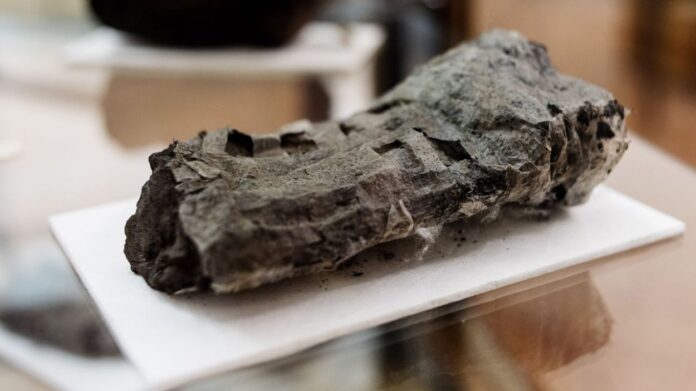Luke Farritor, a 21-year-old undergraduate from the University of Nebraska, accomplished a significant milestone by employing AI technology to decipher a portion of a 2,000-year-old scroll. His efforts were part of the Vesuvius Challenge, an initiative to interpret ancient papyri preserved by Mount Vesuvius’s 79 CE eruption.
The organizers of the Vesuvius Challenge recently acknowledged Farritor’s exceptional work, awarding him the “First Letters” prize and a $40,000 reward. He managed to interpret over ten characters from a fragment of the historic manuscript using a pioneering machine-learning algorithm. This method unveiled the term “Porphyras,” translating to “purple.”
This discovery is particularly noteworthy since the scrolls are too fragile for manual unrolling, risking their dust reduction. Their delicate state stems from their encapsulation in volcanic ash following Mount Vesuvius’s eruption. Federica Nicolardi, a papyrologist at the University of Naples, referred to these manuscripts as “astonishingly crumpled and crushed.”
Beyond merely deciphering these texts, Farritor’s success holds the promise of transforming our grasp of ancient civilizations and literary works. Despite this progress, numerous scrolls remain to be decrypted.
The Vesuvius Challenge persists in its call for scholars to unravel four segments from two imaged scrolls, with a substantial reward of $700,000 awaiting the victor.

